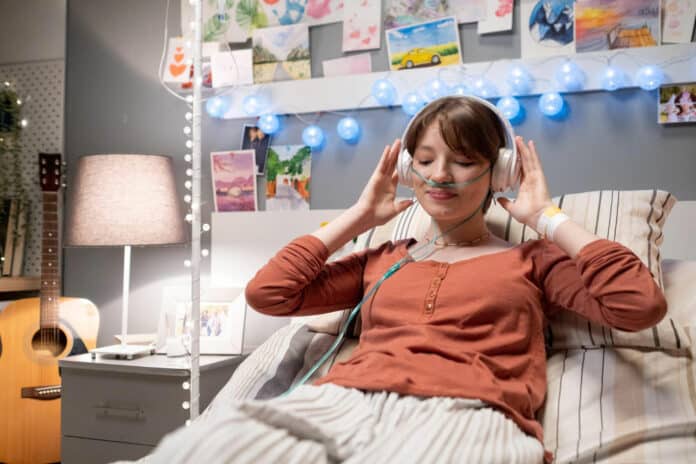A pilot study from Northwestern Medicine reveals that clinical viola music played improvisationally can help calm agitated epilepsy patients, which is evident from changes in their brain waves.
Epilepsy patients in the hospital often go through demanding tests. To provoke seizures, they have to stop or reduce their medications temporarily. This can make them feel anxious and distressed, making it hard to complete the tests.
However, when these patients listened to live, improvisational viola music tailored to their agitation level, their brain waves, monitored with EEG, slowed down, making them calmer and allowing testing to continue. Patients also reported feeling less stressed and anxious after their music experience in the clinical setting.
Dr. Borna Bonakdarpour, associate professor of neurology at Northwestern University Feinberg School of Medicine and a Northwestern Medicine neurologist, said, “Their brains went into a meditative state. When they engaged with the real world, such as watching a TV show or browsing social media on their phone, their brain frequency was an average of 12 or 13 (beta waves) Hertz. However, after the music, it dropped to an 8 or 9, the alpha state.”
The study was published in the journal Frontiers of Neurology on September 1.
The viola was chosen for this research because its pitch range matches the safe vocal range of humans, which is the two middle octaves. Research has shown that this range, often used for lullabies, activates calming systems in the brain.
Dr. Bonakdarpour explained, “There haven’t been many non-medication options for epilepsy patients in the hospital, and our study shows that patients benefited from this music intervention. What’s important is that the patient’s reports matched the changes we saw in their brainwaves, a new approach in an epilepsy-monitoring unit.”
Although the study involved only five patients, Dr. Bonakdarpour plans to conduct a larger clinical trial with 30 to 50 patients.
These findings could benefit patients in the hospital for various reasons, not just epilepsy. Dr. Bonakdarpour mentioned that music is an underused tool in both outpatient and hospital settings.
In the pilot study, 21 epilepsy patients were considered for the trial. Five of them were experiencing significant distress, and they received the music intervention because simply listening to their favorite songs didn’t help.
During the study, participants had personalized 40-minute live music sessions over FaceTime with a trained violist in consultation with a music therapist. The music had simple, calming melodies and was offered as part of the Northwestern Medicine Telemusic Intervention program during the COVID-19 lockdown to ease patients’ distress in the neurosciences unit at Northwestern Memorial Hospital.
In conclusion, this study emphasizes how music can be a helpful way to improve the comfort and well-being of epilepsy patients during their hospital stays.
Journal Reference:
- Bonakdarpour, Guangyu Zhou et al., Calming effect of Clinically Designed Improvisatory Music for patients admitted to the epilepsy monitoring unit during the COVID-19 pandemic: a pilot study. Frontiers in Neurology. DOI:10.3389/fneur.2023.1206171.
